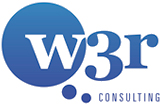Will blockchain technology prove to be a reliable investment? Though cryptocurrencies offer a mixed ROI (for every Bitcoin, there are dozens of failed digital fiat currencies), there are numerous instances where the advantages of blockchain in banking have proven practical for transactional and operational practices.
Here is a glimpse at three ways multinational banks are implementing this technology – and what your organization should consider if you want to give distributed ledgers a try.
Automated Invoice Payments
The prosperity of small to mid-sized businesses depends on the timeliness of invoice payments. Unfortunately, one out of ten invoices is not paid on time, resulting in $3 trillion annually in late payments that ripple outward and threaten the fulfillment of financial obligations down the pipeline. Traditional banks and financial services have an opportunity that can facilitate automatic transactions will not only acquire and retain more customers, but ensure that investments are protected.
we.trade, a relative newcomer to the Fintech space, provides a great example of how blockchain can resolve this challenge. The Dublin based company launched a blockchain-based solution called Auto-Settlement which initiates automatic payments to prevent delays in the invoice payment process. Clients are able to specify settlement conditions upon which automatic payment actions are triggered.
Built upon a distributed ledger, the we.trade Auto-Settlement platform registers receipt of products by the client’s customers and initiates payments across their systems in a way that cannot be disputed. This ensures greater trust in auto payments and prevents expensive delays in rightful compensation.
Accelerated Checks and Queries
Private debt and equity markets is flourish in the post financial crisis world with the global value expected to hit $7.7 trillion by 2022. However, traditional processes are not prepared for the influx of buyers due to a lack of digitization and standardization across private placement securities.
With more global buyers eager to buy debt, equity, or a combination of the two, issuers will need to accelerate both the underwriting and investor verification process. Blockchain has the potential to deliver on both fronts – if it is implemented correctly.
One bank trying to harness the power of blockchain in this instance is HSBC. The multinational moved $20 billion in paper-based records of private placements to blockchain, aiming to standardize and accelerate the overall process. The goal of HSBC’s Digital Vault platform is to reduce the time it takes investors to make checks or queries on holdings. When a security is bought or sold on private markets, there is real-time confirmation across the distributed records. This creates more transparency and fosters faster transactions for these high demand securities.
Synchronized Equity Swaps
With equity swaps on the rise, there is increased demand for financial institutions to improve the trade lifecycle experience. With each counterparty historically maintaining their own books and records, it has been easy for data inconsistencies to arise, elevating operational costs to rectify the discrepancies. Blockchain can reduce operational expenses and increase accuracy, but only if there is a common transactional infrastructure.
In February of 2020, the blockchain provider Axoni launched a distributed ledger network to manage seamless equity swapping transactions between financial institutions. Citi Bank and Goldman Sachs took part in the first live data processing, but other large financial institutions have embraced Axoni’s solution. This blockchain solution provides real-time synchronization throughout transaction lifecycle stages ranging from the initial trade confirmation and cash flows to amendments and corporate actions. The value throughout this process is comprehensive.
What Is the Future Potential of Blockchain in the Financial Services Sector?
As with any disruptive technology, it is important to appraise the promised advantages of blockchain in banking with a critical eye. In the financial services sector, the most effective blockchain use cases have enhanced transparency and efficiency in transactions.
Some experts see the potential to use blockchain in cybersecurity strategies. Decentralized and distributed platforms that update in real-time would be difficult to compromise or alter without notifying the entire network. Though this tamper-resistant quality has proven successful at keeping cryptocurrency secure, the jury is still out on whether it can enhance an organization’s security posture as a whole.
That’s the overall challenge with the technology: it may still be too new to deliver upon all of the high-minded promises. For those looking for a quick win, the above examples are a great introduction to the technology. In other cases where optimization is the goal, robotic process automation might be a better solution.
If you are looking to do some innovation of your own, engaging the right blockchain talent can set you on the right path to getting the most from your investment in distributed ledgers.
Want to keep up with in-depth perspectives from the w3r Consulting team? Check out our blog to stay current with challenges and topics that matter to your industry.
Related Articles
How Financial Service Firms Are Capitalizing on the Cloud
How Robotic Process Automation in Financial Services Adds Value to Your Business
Uniting in Hope During COVID-19
[/fusion_builder_column][/fusion_builder_row][/fusion_builder_container]

